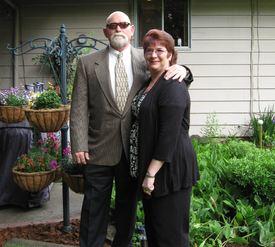PALEO: Cavemen diet? W.rong

McKayMachina
Posts: 2,670 Member
http://www.salon.com/2013/03/10/paleofantasy_stone_age_delusions/
“Paleofantasy”: Stone Age delusions
An evolutionary biologist explains why everything you think you know about cavemen (and their diet) is wrong
BY LAURA MILLER
Four years ago, biology professor Marlene Zuk was attending a conference on evolution and diseases of modern environments. She sat in on a presentation by Loren Cordain, author of “The Paleo Diet” and a leading guru of the current craze for emulating the lifestyles of our Stone-Age ancestors. Cordain pronounced several foods (bread, rice, potatoes) to be the cause of a fatal condition in people carrying certain genes. Intrigued, Zuk stood up and asked Cordain why this genetic inability to digest so many common foods had persisted. “Surely it would have been selected out of the population,” she suggested.
Cordain, who has a Ph.D in exercise physiology, assured Zuk that human beings had not had time to adapt to foods that only became staples with the advent of agriculture. “It’s only been ten thousand years,” he explained. Zuk’s response: “Plenty of time.” He looked at her blankly, and she repeated: “Plenty of time.” Zuk goes on to write, “we never resolved our disagreement.”
That’s not, strictly speaking, true. Consider “Paleofantasy: What Evolution Really Tells Us About Sex, Diet and How We Live,” a conclusive refutation of Cordain’s quixotic, if widespread, view of human evolution, along with many other misconceptions. Zuk — who has a puckish humor (she describes one puffy-lipped Nicaraguan fish as “the Angelina Jolie of cichlids”) and a history of studying evolution, ecology and behavior — found herself bemused by how the object of her research has been portrayed in various media and subcultures. She cruised the New York Times’ health blog and sites like cavemanforum.com, collecting half-baked interpretations of evolutionary “facts” and eccentric theories ranging from the repudiation of eyeglasses to the belief that carbs can make one’s nose “more round.”
Although she writes, “I would not dream of denying the evolutionary heritage present in our bodies,” Zuk briskly dismisses as simply “wrong” many common notions about that heritage. These errors fall into two large categories: misunderstandings about how evolution works and unfounded assumptions about how paleolithic humans lived. The first area is her speciality, and “Paleofantasy” offers a lively, lucid illustration of the intricacies of this all-important natural process. When it comes to the latter category, the anthropological aspect of the problem, Zuk treads more gingerly. Not only is this not her own field, but, as she observes, it is “ground often marked by acrimony and rancor” among the specialists themselves.
It is striking how fixated on the alleged behavior of our hunting-and-foraging forbearers some educated inhabitants of the developed world have become. Among the most obsessed are those who insist, as Zuk summarizes, that “our bodies and minds evolved under a particular set of circumstances, and in changing those circumstances without allowing our bodies time to evolve in response, we have wreaked the havoc that is modern life.” Not only would we be happier and healthier if we lived like “cavemen,” this philosophy dictates, but “we are good at things we had to do back in the Pleistocene … and bad at things we didn’t.”
The most persuasive argument Zuk marshals against such views has to do with the potential for relatively rapid evolution, major changes that can appear over a time as short as, or even shorter than, the 10,000 years Cordain scoffed at. There are plenty of examples of this in humans and other species. In one astonishing case, a type of cricket Zuk studied, when transplanted from its original habitat to Hawaii, became almost entirely silent in the course of a mere five years. (A parasitical fly used the insects’ sounds to locate hosts.) This was all the more remarkable because audible leg-rubbing was the crickets’ main way of attracting mates, literally the raison d’etre of male crickets. The Hawaiian crickets constitute “one of the fastest cases of evolution in the wild, taking not hundreds or thousands of generations, but a mere handful,” Zuk writes. Adjusted to human years, that amounts to “only a few centuries.”
There are human examples, as well, such as “lactase persistence” (the ability in adults to digest the sugar in cow’s milk), a trait possessed by about 35 percent of the world’s population — and growing, since the gene determining it is dominant. Geneticists estimate that this ability emerged anywhere from 2200 to 20,000 years ago, but since the habit of drinking cow’s milk presumably arose after cattle were domesticated around 7000 years ago, the more recent dates are the most likely. In a similar, if nondietary, example, “Blue eyes were virtually unknown as little as 6000 to 10,000 years ago,” while now they are quite common. A lot can change in 10,000 years.
Zuk detects an unspoken, barely formed assumption that humanity essentially stopped evolving in the Stone Age and that our bodies are “stuck” in a state that was perfectly adapted to survive in the paleolithic environment. Sometimes you hear that the intervention of “culture” has halted the process of natural selection. This, “Paleofantasy” points out, flies in the face of facts. Living things are always and continuously in the process of adapting to the changing conditions of their environment, and the emergence of lactase persistence indicates that culture (in this case, the practice of keeping livestock for meat and hides) simply becomes another one of those conditions.
For this reason, generalizations about the typical hunter-gatherer lifestyle are spurious; it doesn’t exist. With respect to what people ate (especially how much meat), the only safe assumption was “whatever they could get,” something that to this day varies greatly depending on where they live. Recently, researchers discovered evidence that people in Europe were grinding and cooking grain (a paleo-diet bugaboo) as far back as 30,000 years ago, even if they weren’t actually cultivating it. “A strong body of evidence,” Zuk writes, “points to many changes in our genome since humans spread across the planet and developed agriculture, making it difficult at best to point to a single way of eating to which we were, and remain, best suited.”
Social and family relationships, too, vary greatly. But to draw conclusions about ancestral hunter-gatherers by examining diverse forager communities existing now, as some anthropologists do, is dubious in itself. Tribal people, too, have had tens of thousands of years to evolve. And unlike paleolithic hunter-gatherers, they live on the margins of developed societies and are almost always affected by them in some way.
Furthermore, the fossil record of the Stone Age is so small and necessarily incomplete that its ability to tell us about paleolithic society is severely limited. Consider this: For all we know, the first tools were not stone implements but woven slings designed to allow a mother to carry an infant while foraging; it’s just that stone happens to survive longer than fibers.
Why are we so intent on establishing how paleolithic people ate, exercised, coupled up and raised their kids? That’s a question Zuk considers only in passing, but she hits the nail pretty solidly on the head: “We have a regrettable tendency to see what we want to see and rationalize what we already want to do. That often means that if we can think of a way in which a behavior, whether it is eating junk food or having an affair, might have been beneficial in an ancestral environment, we feel vindicated, or at least justified.” Even if we wanted to live like cavemen, Zuk points out (noting that the desire to do so somehow never seems to extend to moving into mud huts), we couldn’t. In reality, we don’t have their bodies, and don’t live in their world. Even the animals and plants we eat have changed beyond recognition from their paleolithic ancestors. It turns out we’re stuck being us.
---
Thoughts?
“Paleofantasy”: Stone Age delusions
An evolutionary biologist explains why everything you think you know about cavemen (and their diet) is wrong
BY LAURA MILLER
Four years ago, biology professor Marlene Zuk was attending a conference on evolution and diseases of modern environments. She sat in on a presentation by Loren Cordain, author of “The Paleo Diet” and a leading guru of the current craze for emulating the lifestyles of our Stone-Age ancestors. Cordain pronounced several foods (bread, rice, potatoes) to be the cause of a fatal condition in people carrying certain genes. Intrigued, Zuk stood up and asked Cordain why this genetic inability to digest so many common foods had persisted. “Surely it would have been selected out of the population,” she suggested.
Cordain, who has a Ph.D in exercise physiology, assured Zuk that human beings had not had time to adapt to foods that only became staples with the advent of agriculture. “It’s only been ten thousand years,” he explained. Zuk’s response: “Plenty of time.” He looked at her blankly, and she repeated: “Plenty of time.” Zuk goes on to write, “we never resolved our disagreement.”
That’s not, strictly speaking, true. Consider “Paleofantasy: What Evolution Really Tells Us About Sex, Diet and How We Live,” a conclusive refutation of Cordain’s quixotic, if widespread, view of human evolution, along with many other misconceptions. Zuk — who has a puckish humor (she describes one puffy-lipped Nicaraguan fish as “the Angelina Jolie of cichlids”) and a history of studying evolution, ecology and behavior — found herself bemused by how the object of her research has been portrayed in various media and subcultures. She cruised the New York Times’ health blog and sites like cavemanforum.com, collecting half-baked interpretations of evolutionary “facts” and eccentric theories ranging from the repudiation of eyeglasses to the belief that carbs can make one’s nose “more round.”
Although she writes, “I would not dream of denying the evolutionary heritage present in our bodies,” Zuk briskly dismisses as simply “wrong” many common notions about that heritage. These errors fall into two large categories: misunderstandings about how evolution works and unfounded assumptions about how paleolithic humans lived. The first area is her speciality, and “Paleofantasy” offers a lively, lucid illustration of the intricacies of this all-important natural process. When it comes to the latter category, the anthropological aspect of the problem, Zuk treads more gingerly. Not only is this not her own field, but, as she observes, it is “ground often marked by acrimony and rancor” among the specialists themselves.
It is striking how fixated on the alleged behavior of our hunting-and-foraging forbearers some educated inhabitants of the developed world have become. Among the most obsessed are those who insist, as Zuk summarizes, that “our bodies and minds evolved under a particular set of circumstances, and in changing those circumstances without allowing our bodies time to evolve in response, we have wreaked the havoc that is modern life.” Not only would we be happier and healthier if we lived like “cavemen,” this philosophy dictates, but “we are good at things we had to do back in the Pleistocene … and bad at things we didn’t.”
The most persuasive argument Zuk marshals against such views has to do with the potential for relatively rapid evolution, major changes that can appear over a time as short as, or even shorter than, the 10,000 years Cordain scoffed at. There are plenty of examples of this in humans and other species. In one astonishing case, a type of cricket Zuk studied, when transplanted from its original habitat to Hawaii, became almost entirely silent in the course of a mere five years. (A parasitical fly used the insects’ sounds to locate hosts.) This was all the more remarkable because audible leg-rubbing was the crickets’ main way of attracting mates, literally the raison d’etre of male crickets. The Hawaiian crickets constitute “one of the fastest cases of evolution in the wild, taking not hundreds or thousands of generations, but a mere handful,” Zuk writes. Adjusted to human years, that amounts to “only a few centuries.”
There are human examples, as well, such as “lactase persistence” (the ability in adults to digest the sugar in cow’s milk), a trait possessed by about 35 percent of the world’s population — and growing, since the gene determining it is dominant. Geneticists estimate that this ability emerged anywhere from 2200 to 20,000 years ago, but since the habit of drinking cow’s milk presumably arose after cattle were domesticated around 7000 years ago, the more recent dates are the most likely. In a similar, if nondietary, example, “Blue eyes were virtually unknown as little as 6000 to 10,000 years ago,” while now they are quite common. A lot can change in 10,000 years.
Zuk detects an unspoken, barely formed assumption that humanity essentially stopped evolving in the Stone Age and that our bodies are “stuck” in a state that was perfectly adapted to survive in the paleolithic environment. Sometimes you hear that the intervention of “culture” has halted the process of natural selection. This, “Paleofantasy” points out, flies in the face of facts. Living things are always and continuously in the process of adapting to the changing conditions of their environment, and the emergence of lactase persistence indicates that culture (in this case, the practice of keeping livestock for meat and hides) simply becomes another one of those conditions.
For this reason, generalizations about the typical hunter-gatherer lifestyle are spurious; it doesn’t exist. With respect to what people ate (especially how much meat), the only safe assumption was “whatever they could get,” something that to this day varies greatly depending on where they live. Recently, researchers discovered evidence that people in Europe were grinding and cooking grain (a paleo-diet bugaboo) as far back as 30,000 years ago, even if they weren’t actually cultivating it. “A strong body of evidence,” Zuk writes, “points to many changes in our genome since humans spread across the planet and developed agriculture, making it difficult at best to point to a single way of eating to which we were, and remain, best suited.”
Social and family relationships, too, vary greatly. But to draw conclusions about ancestral hunter-gatherers by examining diverse forager communities existing now, as some anthropologists do, is dubious in itself. Tribal people, too, have had tens of thousands of years to evolve. And unlike paleolithic hunter-gatherers, they live on the margins of developed societies and are almost always affected by them in some way.
Furthermore, the fossil record of the Stone Age is so small and necessarily incomplete that its ability to tell us about paleolithic society is severely limited. Consider this: For all we know, the first tools were not stone implements but woven slings designed to allow a mother to carry an infant while foraging; it’s just that stone happens to survive longer than fibers.
Why are we so intent on establishing how paleolithic people ate, exercised, coupled up and raised their kids? That’s a question Zuk considers only in passing, but she hits the nail pretty solidly on the head: “We have a regrettable tendency to see what we want to see and rationalize what we already want to do. That often means that if we can think of a way in which a behavior, whether it is eating junk food or having an affair, might have been beneficial in an ancestral environment, we feel vindicated, or at least justified.” Even if we wanted to live like cavemen, Zuk points out (noting that the desire to do so somehow never seems to extend to moving into mud huts), we couldn’t. In reality, we don’t have their bodies, and don’t live in their world. Even the animals and plants we eat have changed beyond recognition from their paleolithic ancestors. It turns out we’re stuck being us.
---
Thoughts?
0
Replies
-
Oops. Misplaced my title period.
 0
0 -
Oh forget it0
-
OMG cliffs notes please. anyone?0
-
You gotta know that when you post a 3 page report, you need to give the normal 90% of us a TLDNR sentence that sums it all up.0
-
Yeah...I didn't get past the first paragraph...puhleeeeze...0
-
Interesting. For those in need of a shorter version, this part might do:
Recently, researchers discovered evidence that people in Europe were grinding and cooking grain (a paleo-diet bugaboo) as far back as 30,000 years ago, even if they weren’t actually cultivating it. “A strong body of evidence,” Zuk writes, “points to many changes in our genome since humans spread across the planet and developed agriculture, making it difficult at best to point to a single way of eating to which we were, and remain, best suited.”0 -
Quite an interesting read. Thank you for sharing.0
-
Interesting. For those in need of a shorter version, this part might do:
Recently, researchers discovered evidence that people in Europe were grinding and cooking grain (a paleo-diet bugaboo) as far back as 30,000 years ago, even if they weren’t actually cultivating it. “A strong body of evidence,” Zuk writes, “points to many changes in our genome since humans spread across the planet and developed agriculture, making it difficult at best to point to a single way of eating to which we were, and remain, best suited.”
^This should do.0 -
paleo: otherwise known as the unnecessary avoidance of certain food groups for no particular reason diet0
-
paleo: otherwise known as the unnecessary avoidance of certain food groups for no particular reason diet
and apparently now unsupported.0 -
am i supposed to read all of that?0
-
Quite an interesting read. Thank you for sharing.0
-
I'm a palaeoanthropology nerd, and seriously none of this is new.
actually the first time i heard of the paleo diet was from one of the lecturers at uni, but what he advised was very, very different to the modern version of paleo, and it was based on modern hunter gatherers' diets more than "caveman" diet...
I mean the term "caveman" is misleading in itself, the vast majority of palaeolithic people most likely did not live in caves, but the ones that did, their bones and tools were preserved because the cave sheltered them. There's a lot of bias in the fossil record because of that. And the point about baby carriers and other tools made of wood or other materials that decompose is part of the same thing. What survives is not a representative sample of what once existed. Not sure about baby carriers being the first tools though, because that would require knowledge of how to tan a hide, which I'm pretty sure Homo habilis didn't have (they had stone tools), plus they scavenged meat i.e. lion kill after the lions had finished, so it's unlikely they could get much hide that wasn't torn to bits to even think about tanning it. It's likely Homo habilis was hairy enough for their babies to cling to their mother's hair (like a baby chimp does) - but I do agree that baby carriers and bags to carry gathered food in were invented much earlier than people would think. Maybe Homo erectus but that's a bit of a stretch, Homo heidelbergensis could probably tan a hide though, which means clothes, carrying bags, baby carriers, blankets and the like. Neanderthals certainly had this technology.
Regards "caveman" diet - the point that evolutionary biologists don't know very much about caveman diets is absolutley correct... they know what species of animals they ate, they sometimes can tell if they were scavenged or hunted, from the bones found associated with human remains and things like stone tool cut marks on the bones. These are found on human bones too (particularly with neanderthals, but far fewer bones from earlier species survived to know if they ate humans too). However very, very little of plant foods survive in the fossil record, it's very hard to tell what plants they ate. They can tell with neanderthals, but that's from studying very recent neanderthal skeletons (teeth, in this case) i.e. ones who died around 40,000 years ago or sooner. earlier species of humans it's much harder to tell. It makes me laugh how you get apps that tell me what caveman did or didn't eat, when the Journal of Human Evolution can't tell me that. And there is no reason at all to think that they didn't eat grains at all, because they would have eaten whatever edible plants were in their environment, which would have included grains. Neolithic man certainly did not invent grains, they cultivated them!!
That said, I don't think the whole idea of paleo dieting is incorrect. It's more a question that a lot of the more popular, internet forms of the diet are based on incorrect information and there are some common misconceptions. Also, the grain hating aspect is just a gimmick to sell books.
The advice from the palaeoanthropology lecturer at my uni (I studied there in the late 90s) was more along the lines of eating wild meat rather than farmed (the macros are very different in many cases), and trying to eat as wide a variety of plant foods as you can. The idea that many people can't digest dairy because it's a very recent adaptation was discussed from an academic point of view, as was the fact that reliance on large quantities of only one or two plants in early agricultural populations resulted in a lot of nutritional deficiencies, plus other problems associated with farming, e.g. repetitive strain injury from some tasks like grinding grains all day long. There was no suggestion that anyone give up any foods that they can digest, or any hating on grains, the suggestion was to eat a wide variety of different plant foods, rather than huge quantities of just one, and that people from certain ethnic groups are more likely to be lactose intolerant. IMO if you're going to go palaeo or primal, it's a good idea to look at what your ancestors of 500-1000 years ago were doing, rather than going way, way back. If they were hunter-gatherers, chances are you can't digest lactose very well and it might be a good idea to give it up (but only if you're also having digestive problems, no need to give something up if it's not making you ill) ......And going very far back (in terms of what ancestors you eat like) begs the question as to which ancestors you choose because they all ate very different diets and the human evolutionary niche is adaptability.... upper palaeolithic homo sapiens...? (in that case which ones, because different groups ate very different diets)... Homo sapiens idaltu? Neanderthals? Homo heidelbergensis? Homo erectus? Homo habilis? Australopithecines...? the further back you go the less like us they were. I don't think any modern human would survive on the diet of early Homo erectus (who seem not to have been able to use fire, and ate mostly scavenged meat - a recipe for gastroenteritis if Homo sapiens should decide to eat like that... H. sapiens could probably subsist of scavenged meat, but the meat would have to be thoroughly cooked, plus not be too old when it's scavenged)
So anyway, I don't think that the whole palaeo approach should be written off (for people who want to emulate the most natural diet of humans) but I think that there needs to be an end to grain hating, and an end to people claiming that "caveman ate/didn't eat (add food here)" if peer reviewed palaeoanthropology journals can't say one way or the other, and also more acceptance of the fact that some people *are* adapted to eat dairy, and that what your more recent ancestors ate plays a big role in what you can digest. My ancestors from 500-1000 years ago ate dairy, I can digest dairy with no problems, therefore I eat dairy. I'm not going to give it up just because various ethnic groups that I'm not from can't digest it easily.0 -
Personally it's changed how I feel about food. Whether you disagree or not and who you choose to believe is up to you but I no longer have to eat every three hours, I don't have any blood sugar problems anymore, I feel an deeply satisfied in this way of life. You can't deny the over 2 million people that live this life, might be gaining some benefits lol. There's plenty of science to back it up also. Ultimately you have to find what works for you, regardless of who thinks what.0
-
Personally it's changed how I feel about food. Whether you disagree or not and who you choose to believe is up to you but I no longer have to eat every three hours, I don't have any blood sugar problems anymore, I feel an deeply satisfied in this way of life. You can't deny the over 2 million people that live this life, might be gaining some benefits lol. There's plenty of science to back it up also. Ultimately you have to find what works for you, regardless of who thinks what.
agreed with this! ^^^ this way of lifestyle works for me. Not a diet...lifestyle! not a fad, its forever. I love it!!! :happy:0 -
Thanks for posting! I'm bumping this.
I think what Paleo cult converts fail to understand is that they come off as extreme to the casual observer. I have two very rabid devotees in my life that have blamed all, and I do mean ALL of my (and my family's) health problems on our use of grain and dairy. Bad menstrual cramps? It's obviously inflammation from a grain filled diet (no, it's actually been proven to be structural for me, but thanks anyway, BOYS.) My grandmother's Alzheimer's? Obviously from her years of eating the grain and dairy devils! These are things these dudes have actually said to me in an attempt to convert me to their "lifestyle" (read: idiot cult.) It's obnoxious. I'm halfway convinced paleo offers little in the way of actual health benefits and is more a platform for feeling self-righteous...
So now I have some sources to back up my assertion. Thanks for that!0 -
Sorry, its OHP day and I'm cranky...
Some people find benefit in eating this way, others don't. There are always extremists in every group of people, btw. I can rattle off some pretty "self righteous" IIFYMers too.
Is it a miracle cure? No. But just because you can't or don't want to eat this way doesn't mean that is wrong or stupid for another person to eat this way.
IDGAF about what anyone else is eating, personally.0 -
Looking at the number of people who can't be bothered to read the article, I just know that Bill Hicks is spinning in his grave.
Good luck working at the Waffle Hut.0 -
Cliffs:
- Paleo Sucks.0 -
Sorry, its OHP day and I'm cranky...
Some people find benefit in eating this way, others don't. There are always extremists in every group of people, btw. I can rattle off some pretty "self righteous" IIFYMers too.
Is it a miracle cure? No. But just because you can't or don't want to eat this way doesn't mean that is wrong or stupid for another person to eat this way.
IDGAF about what anyone else is eating, personally.
Lol love this. It's true, you'll find extremists in every group! Not all Paleo eaters feel the need to preach about it. However I find most people that bash it are those that aren't able to be that controlled with their diet.0 -
Thanks for posting. That was a very interesting article. I just posted it to my FB! :flowerforyou:0
-
Interesting read, thanks. I'm not sure how I feel about the whole hunter-gatherer food pyramid. I'm on the fence at best.
All I can say is that I'm glad I'm not getting clubbed on the head and dragged off to the back of the cave by my caveman husband (but of course if he did I'd be sure to tie my hair with a handy piece of reed up in a high messy bun before we drifted off to a satisfied sleep).0 -
Dont knock it until you've tried it. Not for everyone but definitely works in the right circumstances. If you want to eat paleo but sit on your bum all day expecting to lose fat.....no. For those who box/work out hard (not just playing gym) it can work to shift fat quickly. Never used it for more than 2 weeks at a time. It Works but eating steak for breakfast can be hard going....
I agree its an extreme diet and if you dont stick to it for a period you wont see the benefit.
I believe in a variation of all diets...keep the body guessing and shock it into results....the same with gym routines.0 -
Whether you agree with eating Paleo/Primal/Caveman or whatever you want to call it. I know it works for me. I feel better and am so much happier when I eat Paleo. If you don't like it, agree with it, than don't eat it. PERIOD.
My other question is: How you actually tried it or are you just paste and copying an article that you googled slamming Paleo?0 -
Never followed the paleo route myself but any method which makes you consciously choose lean protein, quality fat sources and abundant fruit and veg isn't that bad in my book.
Just a shame it got hijacked by Low Carb Inc...0 -
As someone who is gluten and lactose intolerant, I'm not randomly cutting out food groups by following a paleo/primal diet. I couldn't care less about what cave people ate, but I know that my body cannot tolerate most grains. Paleo eating is healthy for my body-- that's all that matters to me.0
-
Personally it's changed how I feel about food. Whether you disagree or not and who you choose to believe is up to you but I no longer have to eat every three hours, I don't have any blood sugar problems anymore, I feel an deeply satisfied in this way of life. You can't deny the over 2 million people that live this life, might be gaining some benefits lol. There's plenty of science to back it up also. Ultimately you have to find what works for you, regardless of who thinks what.
agreed with this! ^^^ this way of lifestyle works for me. Not a diet...lifestyle! not a fad, its forever. I love it!!! :happy:
A. I totally agree with ^^^ this is a lifestyle that works with my digestive system and my training. I know how I feel after I eat Paleo and when I chose to eat junk and I'd rather eat Paleo!
B. Seriously folks, this was not a hard article to read!!! I am a bit astonished that people don't want to take the time to read this educational article but are willing to post if the person above them is hot or not....
C. Don't knock the lifestyle until you try it, it is pretty awesome to eat healthy, feel healthy and train healthy!
D. Best of luck friends!0 -
First off, I have no problem with the paleo diet. It's too restrictive for my personal tastes, but it is not unhealthy.
I do have a problem with the utter rubbish people spout as science in regards to it.
It's basically an extreme form of 'the good ol' days' idiom and is nothing more than a marketing ploy aimed towards overworked, jaded people who hanker for a 'simpler' life.0 -
Whether you agree with eating Paleo/Primal/Caveman or whatever you want to call it. I know it works for me. I feel better and am so much happier when I eat Paleo. If you don't like it, agree with it, than don't eat it. PERIOD.
My other question is: How you actually tried it or are you just paste and copying an article that you googled slamming Paleo?
It doesn't matter. It's an article that was just posted yesterday, and this is the Chit Chat board. So it's timely, and personally, I found it interesting.0 -
Sweet and Sour Pretodactyl is the best.0
This discussion has been closed.
Categories
- All Categories
- 1.4M Health, Wellness and Goals
- 398.1K Introduce Yourself
- 44.7K Getting Started
- 261K Health and Weight Loss
- 176.4K Food and Nutrition
- 47.7K Recipes
- 233K Fitness and Exercise
- 462 Sleep, Mindfulness and Overall Wellness
- 6.5K Goal: Maintaining Weight
- 8.7K Goal: Gaining Weight and Body Building
- 153.5K Motivation and Support
- 8.4K Challenges
- 1.4K Debate Club
- 96.5K Chit-Chat
- 2.6K Fun and Games
- 4.8K MyFitnessPal Information
- 12 News and Announcements
- 21 MyFitnessPal Academy
- 1.5K Feature Suggestions and Ideas
- 3.2K MyFitnessPal Tech Support Questions




















